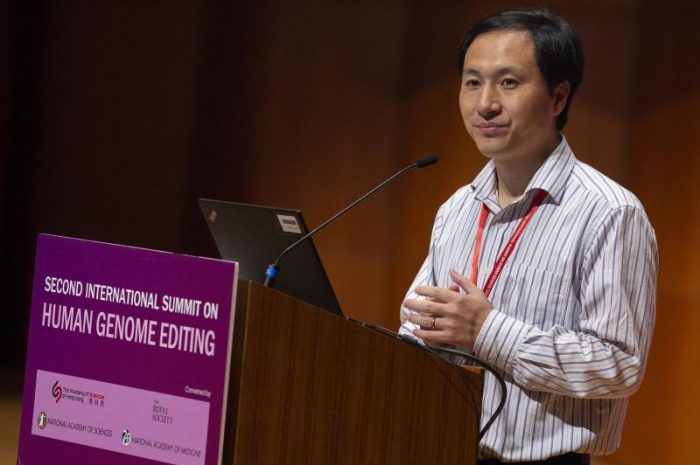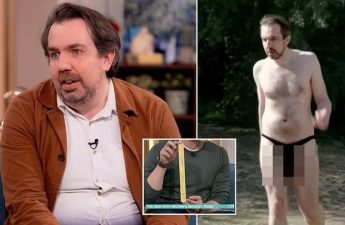A Chinese court in Shenzhen on Monday handed a three-year jail sentence to scientist He Jiankui, who claimed to have produced gene-edited babies. He was also fined about $430,000 for violating relevant regulations and ethical principles.
He, a former associate professor at Southern University of Science and Technology, was convicted by the Nanshan District People’s Court of Shenzhen for illegally editing the genes of human embryo intended for reproduction, in which three children were born, the state-run Xinhuanet reported.
Two other persons, Zhang Renli and Qin Jinzhou, also received jail terms of two years and 18 months with a two-year reprieve, respectively, in connection to the illegal editing of the human embryos, it said.
Last November, He announced at a Hong Kong conference that he had produced the world’s first genetically edited babies, twin girls whose DNA were altered through the use of a gene-editing technique known as CRISPER to make them immune to HIV.
According to the verdict on Monday, the three scientists were not qualified to work as doctors and deliberately violated the country’s regulations in their pursuit of “fame and fortune.”
“[They] went beyond the bottom lines of scientific research and medical ethics,” said the court, which also found that He had forged ethics review documents and fabricated information to have doctors unknowing implant the altered embryo into two women.
Following He’s announcement last year, a group of 122 doctors expressed “firm opposition and strong condemnation” to his research.
“Direct human experiments can only be described as ‘crazy,’” they said in a joint statement. “The accuracy of CRISPR gene-editing technology and the off-target effects it brings are controversial in the scientific community. Any attempt to directly transform human embryos and try to produce babies before they are rigorously further tested is a huge risk.”
Days after he made the announcement, China suspended his work due to concerns it may have violated the law.



